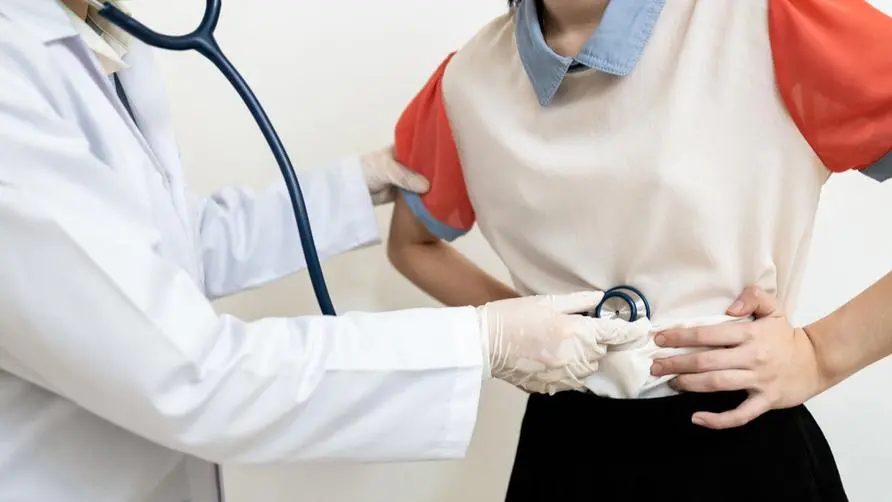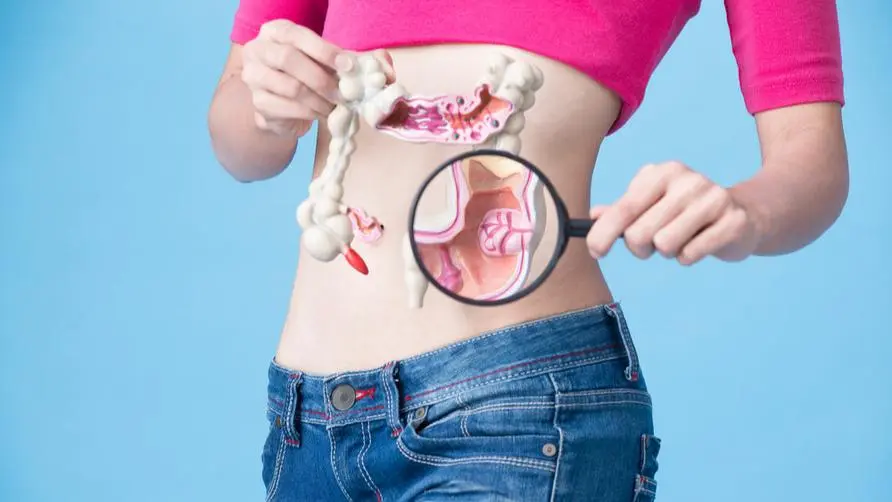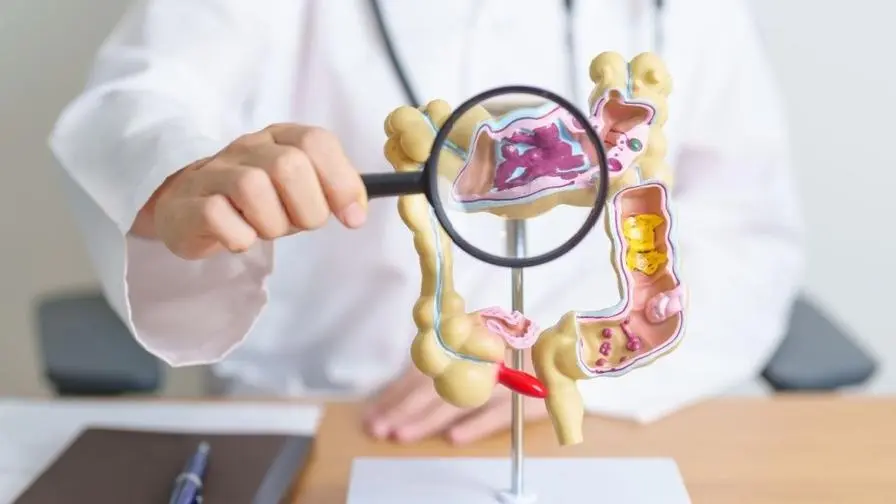Can young people also get "colorectal cancer"? The risk of "2 diseases" in the family is high! Doctor: People in their 30s and 40s should do more "check-ups"

It was recently reported that Yu Tian’s daughter Yu Yuanqi died of colorectal cancer. As soon as the news came out, people from all walks of life were sad. Dr. She Guanmin, the attending physician at the Colorectal Surgery Department of Guangtian General Hospital, pointed out in an exclusive interview that the hereditary proportion of colorectal cancer accounts for about 20% of the overall causes, and it is still mostly related to diet or bad living habits. However, if family members have related mutated genes, it may indeed cause bowel cancer to occur earlier.
Is there a “younger” trend in colorectal cancer? What are the relevant risk factors?
Dr. She Guanmin explained that colorectal cancer caused by genetics can be roughly divided into two types: one is “familial adenomatous polyposis” (FAP), in which hundreds or even thousands of polyps will grow in the patient’s large intestine, and It is easy to eventually progress to colorectal cancer. Such patients need to undergo “preventive rectal resection” at a young age to avoid future intestinal cancer, which may increase the risk of colorectal cancer.
The second is Lynch Syndrome, also known as “hereditary non-polyposis colorectal cancer” (HNPCC), which is caused by related gene mutations in family members. If a first-degree relative is diagnosed with colorectal cancer before the age of 50, or if more than two generations of relatives have a history of colorectal cancer, special attention should be paid to the risk of cancer. In addition, Lynch syndrome is also related to cancer in the stomach, ovaries, urinary tract or endometrium. It is recommended that high-risk groups adopt genetic testing to detect potential cancer cells early and treat them.
Dr. She Guanmin also emphasized that based on the current global trend, colorectal cancer patients are indeed getting younger. Factors with higher correlation may include excessive intake of high-fat, high-calorie foods and red meat; smoking, drinking, and lack of exercise and sitting for long periods of time lead to obesity. wait. Young people are urged to pay attention to their daily diet and avoid bad habits to avoid damaging their intestinal health.
Are the symptoms of colorectal cancer different depending on the location? Be alert to anemia, bloody stools, and chronic bleeding
Colorectal cancer may have different symptoms depending on its location. Dr. She Guanmin explained that colorectal cancer often progresses from polyps to malignant tumors, with no obvious symptoms in the early stages. When the tumors continue to grow and progress to advanced stages, symptoms will differ depending on the location of the occurrence. If the tumor appears in the right large intestine (the cecum, the intersection with the small intestine), the stool is still watery, and the diameter of the large intestine is not easy to cause obstruction. Symptoms such as abdominal distension, abdominal pain or anemia may occur, and may even be combined with chronic bleeding and discoloration of the stool. Black and other conditions.
On the contrary, if it occurs on the left side of the large intestine (descending colon, sigmoid colon, or rectum), symptoms such as abdominal pain, bloody stools, or changes in bowel habits (such as diarrhea, constipation) will be manifested. Once the above symptoms appear, patients are often mistaken for simple diarrhea or bleeding hemorrhoids. If they delay seeking medical treatment, they may miss the golden period of treatment and cause cancer cells to proliferate, making treatment more difficult.
Is colorectal cancer at higher risk of late recurrence? How can young people prevent colorectal cancer?
Will colorectal cancer recur? Is there any difference between early and late stages? Dr. She Guanmin pointed out that the risk of lymph node metastasis in the first stage of colorectal cancer is not high, and surgical treatment is mainly used with regular follow-up. The 5-year survival rate can reach about 90%. As the disease progresses to the second and third stages, the risk of malignant metastasis of the tumor becomes higher. It is usually recommended to use postoperative adjuvant chemotherapy to reduce the risk of recurrence.
“Patients with colorectal cancer will have their tumor index tracked every 3 months in the 2 years before surgery. After 2 years, the patient’s condition will be tracked every 6 months if the condition is stable. Computerized tomography and colonoscopy will be done regularly to better understand the tumor more completely. whereabouts and reduce the possibility of recurrence!”
As for how young people can prevent the risk of bowel cancer? Dr. She Guanmin believes that young people generally lack vigilance. When cancer is detected, the disease has often progressed to the end stage. On the contrary, older people will become alert when they feel uncomfortable, making it easier for early detection and early treatment. “Young people may think it’s hemorrhoids or constipation because they haven’t eaten enough vegetables. In fact, these symptoms may be warning signs of colorectal cancer!”
Dr. She Guanmin said that there was a patient who suffered from colorectal cancer when he was only in his 20s. He mistakenly thought it was ordinary gastrointestinal symptoms, so he delayed seeking medical treatment. After examination, it was found that the cancer was in the terminal stage with severe distant metastasis, and he died soon after. Therefore, if you feel that related gastrointestinal symptoms (such as bloody stools) do not improve, you may need to be more vigilant.
Colorectal cancer in young people still has a chance to be cured! Doctors urge people to do “5 more things”
Taiwan Health Promotion Administration provides free colorectal cancer screening for people over 50 years old, but how can young people aged 30-40 prevent colorectal cancer? Dr. She Guanmin suggested that you first need to understand whether you have a family history, and then adjust your living habits according to the situation. Those who are addicted to fried foods and barbecues, as well as have bad habits such as smoking and drinking, should moderately reduce their intake of red meat and processed foods, quit smoking and alcohol addiction, eat more fruits and vegetables, and develop the habit of regular exercise.
In addition, it is also recommended that young people include “colonoscopy screening” during routine physical examinations to check whether there are polyps in the large intestine. If there are no polyps, follow up regularly every 5 years. Dr. She Guanmin emphasized that if patients aged 30-40 receive early formal treatment, they still have a chance to be cured and the prognosis is good; therefore, if relevant symptoms occur, they can go to the colorectal department for further examination to minimize the risk of cancer.
Further reading:





